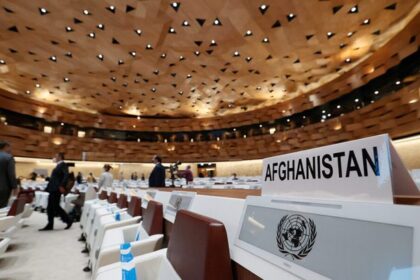RASC News Agency: Leaders from several Central Asian countries, during a summit in Kazakhstan, called on the German Chancellor to normalize relations with the Taliban regime in Afghanistan. Chancellor Olaf Scholz, however, strongly condemned the severe restrictions on women’s rights imposed by the Taliban, stating that the situation in Afghanistan is “unacceptable.” On Tuesday, Chancellor Olaf Scholz attended a summit in Kazakhstan alongside the leaders of five Central Asian countries: Kazakhstan, Uzbekistan, Kyrgyzstan, Tajikistan, and Turkmenistan. Of these nations, Uzbekistan, Turkmenistan, and Tajikistan share borders with Afghanistan.
According to a report by “DPA”, Afghanistan was a central topic of discussion at the summit, with several leaders expressing their desire to normalize relations with the Taliban’s Islamist regime. However, Scholz, in a measured response, emphasized the severe restrictions imposed by the Taliban on women’s rights, signaling Germany’s firm stance on the issue. Germany, which had a significant military presence in Afghanistan for two decades as part of the U.S.-led international mission, has maintained a consistently critical stance toward the Taliban regime.
In addressing the summit, Scholz remarked on Afghanistan: “What is happening there is entirely unacceptable. It is clear that this government came to power through illegitimate means, and the current developments in the country are deeply troubling.” While some Central Asian nations have not formally recognized the Taliban government, they have nonetheless maintained diplomatic and trade relations with the regime. The Taliban, who have persistently sought recognition from the international community, have yet to be acknowledged by any country as the legitimate government of Afghanistan. Recently, they have made efforts to gain more control over Afghanistan’s diplomatic missions in Europe, including Germany.
The German Federal Government has repeatedly stated that the prerequisites for normalizing relations such as adherence to international obligations and the protection of human rights have not yet been met in Afghanistan. During his visit to Central Asia, Scholz also signed a migration agreement with Uzbekistan, allowing skilled Uzbek workers to migrate to Germany. In exchange, Uzbekistan will repatriate its citizens living in Germany without legal residency.
Furthermore, there have been reports of German-Uzbek cooperation in the deportation of Afghanistani refugees. When questioned about Uzbekistan’s potential role in facilitating the deportation of Afghanistani refugees from Germany to Afghanistan, Scholz responded that “there are, of course, confidential discussions on cooperation in various areas,” but declined to provide further details.






